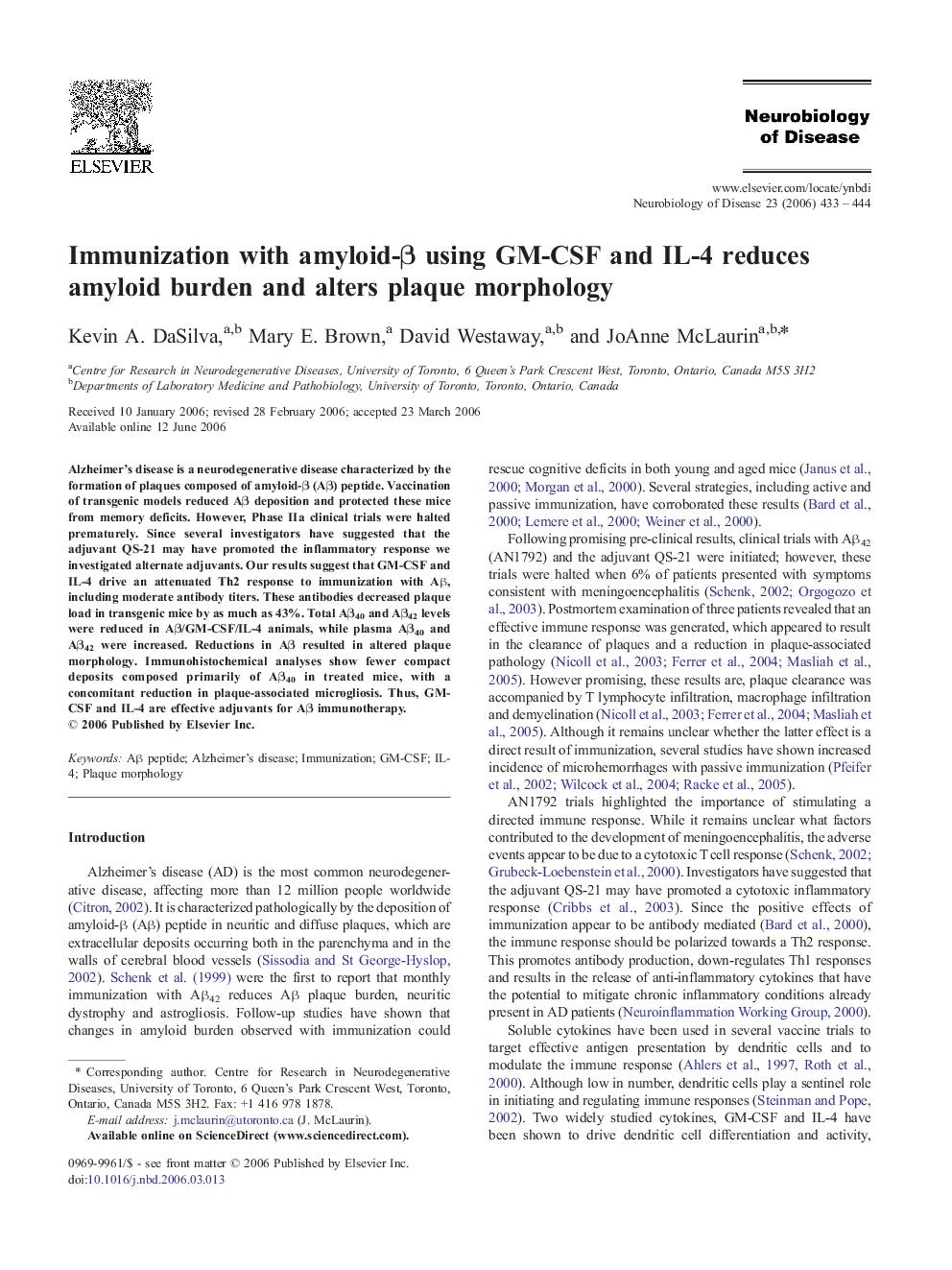| Article ID | Journal | Published Year | Pages | File Type |
|---|---|---|---|---|
| 3071007 | Neurobiology of Disease | 2006 | 12 Pages |
Alzheimer's disease is a neurodegenerative disease characterized by the formation of plaques composed of amyloid-β (Aβ) peptide. Vaccination of transgenic models reduced Aβ deposition and protected these mice from memory deficits. However, Phase IIa clinical trials were halted prematurely. Since several investigators have suggested that the adjuvant QS-21 may have promoted the inflammatory response we investigated alternate adjuvants. Our results suggest that GM-CSF and IL-4 drive an attenuated Th2 response to immunization with Aβ, including moderate antibody titers. These antibodies decreased plaque load in transgenic mice by as much as 43%. Total Aβ40 and Aβ42 levels were reduced in Aβ/GM-CSF/IL-4 animals, while plasma Aβ40 and Aβ42 were increased. Reductions in Aβ resulted in altered plaque morphology. Immunohistochemical analyses show fewer compact deposits composed primarily of Aβ40 in treated mice, with a concomitant reduction in plaque-associated microgliosis. Thus, GM-CSF and IL-4 are effective adjuvants for Aβ immunotherapy.
